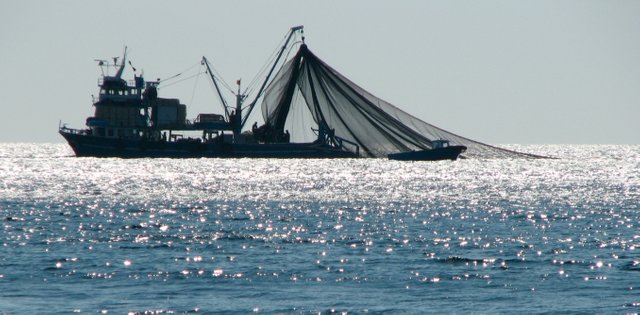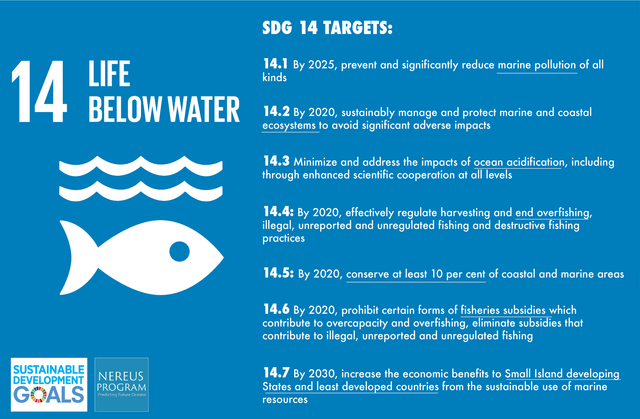Fisheries Subsidies by 2019
Trade negotiators in several developing countries might be confused regarding fisheries subsidies... asking policy makers around the world what will be the definite posture their countries will take in the negotiations taking place in Geneva, house of the World Trade Organization (WTO), for the next two years?
In my next posts I'll try to friendly explain what many people saw as the best (and only) outcome of the WTO Ministerial meeting that took place in Buenos Aires last december 2017... and how it involves commercial, environmental and labor issues.

For those of you who are not familiar with the definition of "subsidies" according the WTO, let me briefly state what it involves. So its definition is determined by three basic aspects: (1) a financial contribution - money, exempt of taxes, etc; (2) by a government or any public body within the territory of a Member - Ministry, Municipality, etc; (iii) which confers a benefit - most likely low prices so you can reach customers better.
Well of course a government is in it's own right to grant subsidies to whatever industry they'd like, right? Well not exactly. There are 164 WTO Members and they all have made several commitments layed out in the Agreement on Subsidies and Countervailing Measures. However this is not the topic of discussion today, plus that Agreement has been in forced since 1995 so I'm pretty sure there are tons (literally, tons) of publications out there for those interested.
But what about when you grant subsidies to the explotation of a natural resource? Say wood, say fish. What about fisheries subsidies? What about the money fishermen get from their respective government to help them fish? What if they are not only fishermen but industrial companies? What is the definition of "fishermen"? 32 m3 of fleet capacity... 64 m3? When is it ok to fish... when should we just stop? How do we know when it's harming the resource sustainability?What if these helped fishermen export the fish they catch?... What if exporting it with low prices harm other countries' fishermen?... and I could go on for hours.
Complicated, right?
For almost 20 years now, there has been several attempts to negotiate the establishment of disciplines on harmful fisheries subsidies. We say harmful because we are talking about those subsidies that help to catch hundreds of fish even when they are not "baby fishes" to ensure their continuity. Through any interpretation this means they negatively affect the sustainability of the resource. But back to the point, those negotiation attempts have hardly headed anywhere. In 2001 and 2005 there was some negotiating mandates in Doha and Hong Kong, respectively.. but look we are in 2018 and I don't see any commitment on the table.
However something happened in 2015. The so well advertised UN 2030 Development Agenda.

More info: http://www.un.org/sustainabledevelopment/oceans/
The 6th target of the Sustainable Development Goal number 14.6 reads:
"By 2020, prohibit certain forms of fisheries subsidies which contribute to overcapacity and overfishing, eliminate subsidies that contribute to illegal, unreported and unregulated fishing and refrain from introducing new such subsidies, recognizing that appropriate and effective special and differential treatment for developing and least developed countries should be an integral part of the World Trade Organization fisheries subsidies negotiation."
The WTO shines by being so present in the UN Mandate that it needs to do something.
Members have clinged on this mandate since 2015 and finally got their own WTO mandate in Buenos Aires by indicating that its 164 Members agreed to constructively continue the fisheries subsidies negotiations in Geneva, with a view to adopting an agreement, by 2019, on disciplines that prohibit certain forms of fisheries subsidies that contribute to overcapacity and overfishing, and eliminate subsidies that contribute to Illegal, Unreported, Unregulated fishing.
Simple words: WTO Members (164 in total) have committed to negotiate an agreement by 2019. This agreement has the intention to prohibit and/or eliminate (only) harmful fisheries subsidies, that negatively affect the sustainability of fish stocks.
The reason why this causes so much fuzz is because it's a hell of a sensitive topic. It's environment we are talking about but it also involves lots of jobs (in some cases, as small-scale or artisanal fisheries we are talking about jobs from poor people)... so how do you do this? How do you ensure fish sustanaibility and still "help" your fisheries sector?
Policy makers are going to set up their positions straighforward this time. 2019 seems the biggest chance the WTO will have to close this topic once for all.
Wow ....
Congratulations @nomqc! You received a personal award!
Click here to view your Board
Do not miss the last post from @steemitboard:
Congratulations @nomqc! You received a personal award!
You can view your badges on your Steem Board and compare to others on the Steem Ranking
Vote for @Steemitboard as a witness to get one more award and increased upvotes!